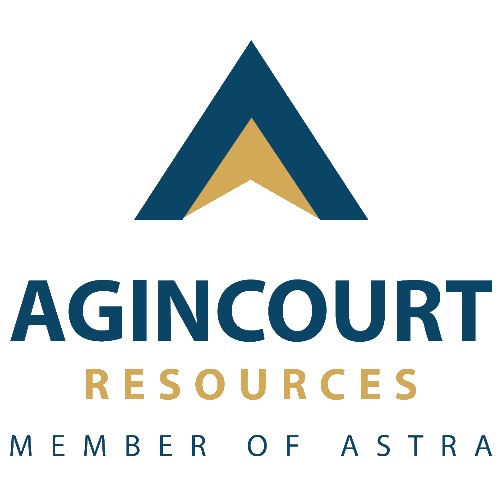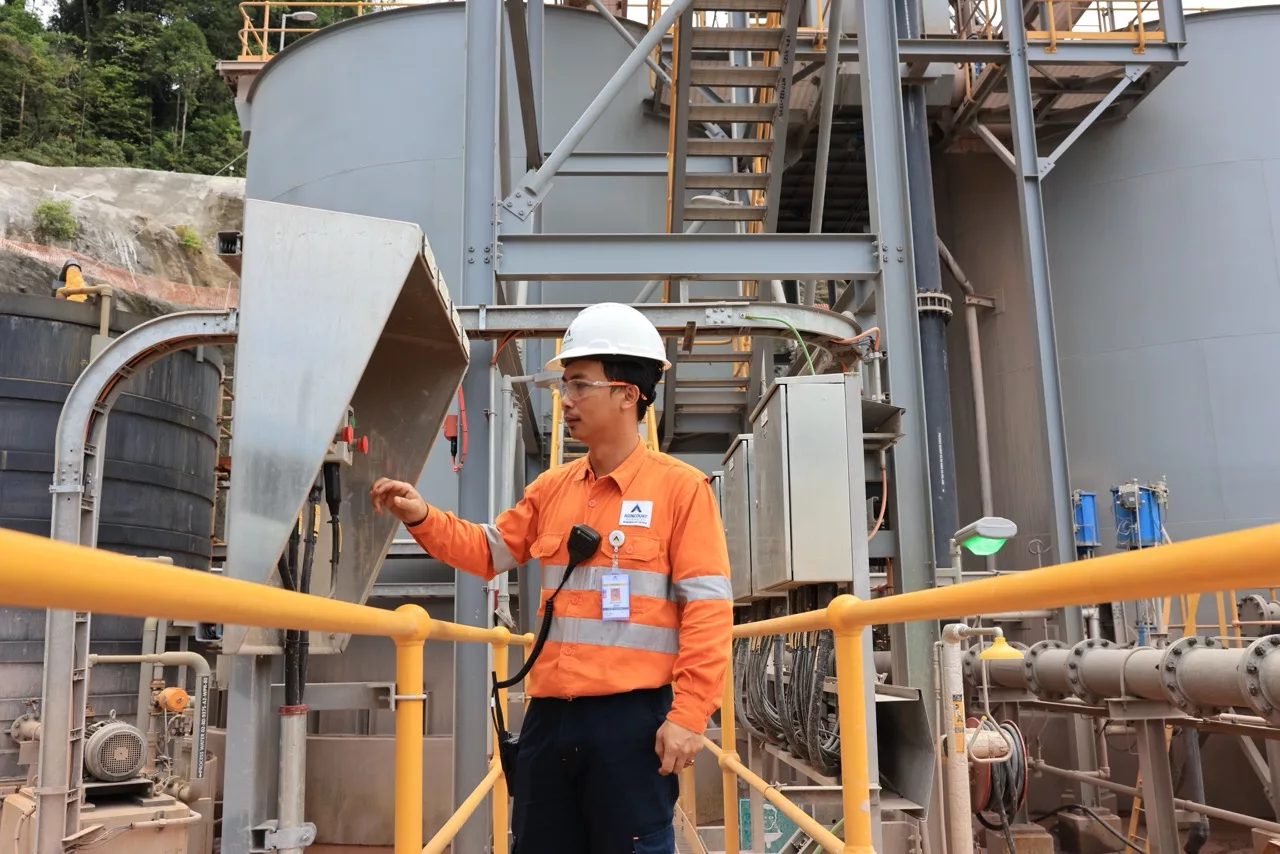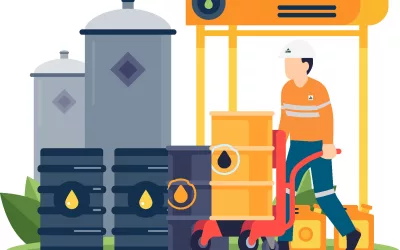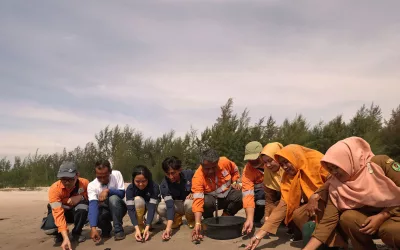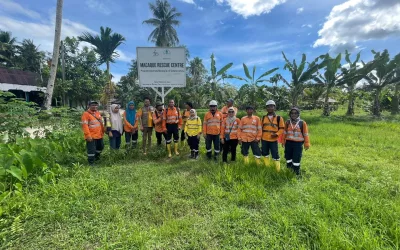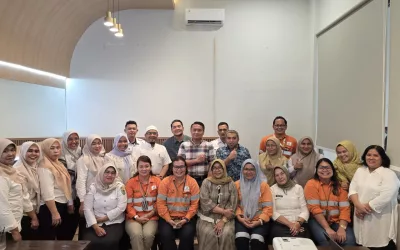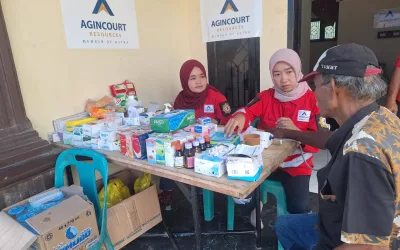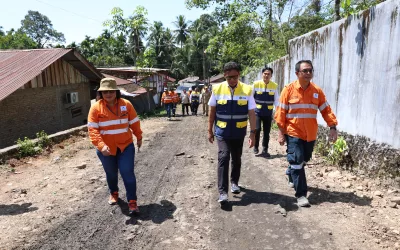Advancements in tailings management continue to evolve in line with growing awareness of the importance of responsible and sustainable mining practices. At Agincourt Resources, the implementation of Filtration Plant technology marks a significant milestone in efforts to minimize the environmental impact of mining operations. This technology not only enhances operational efficiency but also plays a strategic role in establishing a safer and more sustainable tailings management system.
Slurry tailings, a mixture of fine mineral processing particles and water, are typically transported to storage facilities via pipelines. Due to their semi-liquid form and high water content, slurry tailings pose significant technical challenges in terms of storage and handling. Transforming slurry tailings into solid form through filtration is a crucial step toward improving the stability and safety of tailings storage facilities.
The Filtration Plant separates water from slurry tailings to produce solid tailings, known as tailings cake, which are then stored in the Tailing Management Facility (TMF) and the Alternative Tailing Facility (ATF), replacing the previous use of a Tailing Storage Facility (TSF). This approach significantly reduces the risk of storage failure, as solid tailings offer greater stability than their slurry counterparts, particularly under dynamic geotechnical conditions and extreme climate events.
Read Also: Waste Sortation Facility Agincourt Resources’ Innovation in Sustainable Waste Management
Water collected in the TSF, including that recovered through filtration, is prioritized for recycling to support processing plant operations. If operational water requirements are met and surplus water remains, it is treated in a Wastewater Treatment Plant (IPAL) until it complies with environmental quality standards before being discharged into surface water bodies. This process aligns with water resource efficiency principles, reduces emissions from fresh water treatment, and minimizes dependence on surface water sources.
Tailings Cake Utilization Plan
Agincourt Resources goes beyond tailings storage by actively developing innovations for the beneficial reuse of tailings cake in various construction applications. Ongoing studies are exploring the potential of tailings as an alternative raw material for products such as bricks, paving blocks, and other building components in collaboration with academic institutions. One promising initiative is a partnership with Environmental Engineering students from Brawijaya University to develop tailings-based bricks. Another project, in collaboration with postgraduate students from IPB University, focuses on identifying plant species capable of absorbing contaminants from tailings to support revegetation efforts in dry tailings areas.
In the context of climate change adaptation, Agincourt Resources has also developed risk mitigation strategies for extreme weather events such as heavy rainfall and flooding. These contingency plans include effective drainage management, slope engineering based on geotechnical designs, and routine environmental monitoring to prevent adverse environmental incidents.
The company is also preparing a comprehensive revegetation program for dry tailings storage areas. The initial stage involves planting leguminous cover crops to reduce erosion and sedimentation. This is followed by the introduction of fast-growing pioneer species to accelerate revegetation, and finally, the reintroduction of native and endemic plants to enhance biodiversity and restore the natural ecosystem. This revegetation effort is conducted in conjunction with continuous environmental monitoring as outlined in the mine closure plan.
The Filtration Plant technology implemented by Agincourt Resources serves as a tangible reflection of the mining industry’s commitment to balancing operational needs with environmental sustainability. Through innovative approaches, safer tailings management, and progressive reuse initiatives, Agincourt Resources remains firmly focused on a future of environmentally responsible and sustainable mining.
